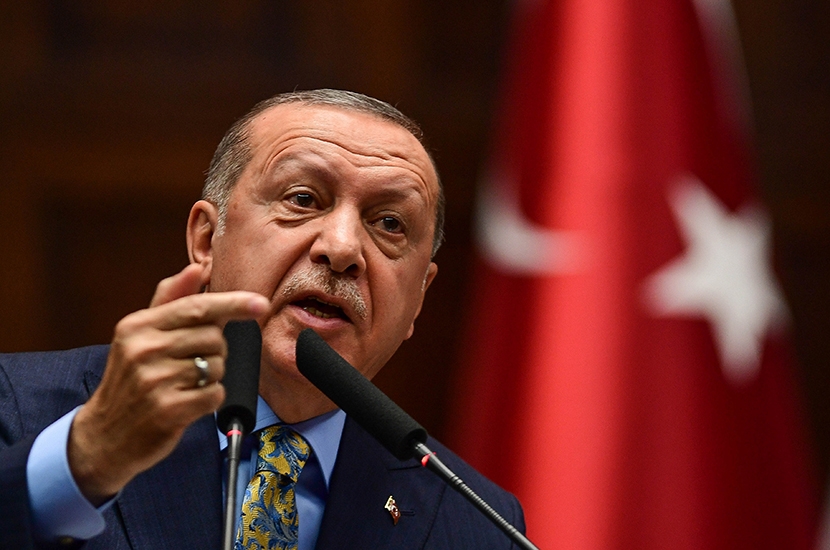No one should fool themselves about the nature of Recep Tayyip Erdogan’s vision for Turkey. It’s an imperialist project that would see Turkey’s hegemony stretch from the Mediterranean Sea and Libya all the way to Iran.
Erdogan’s plans for his country’s expansion are evident in the current stand-off in the eastern Mediterranean between Turkey and Greece. Turkish frigates are accompanying a research vessel, the Oruc Reis, as it enters disputed waters to carry out a seismic survey in search of natural gas. In its path lies a joint force of Greek and French warships, attempting to prevent the Turkish from venturing further. The two sides have almost come to blows — two frigates accidentally collided this month.
Tensions between the two countries are not unusual. In 1996 they almost went to war over an islet populated only by goats. Greece still records thousands of violations of its airspace by Turkish warplanes every year. Yet there is much more to the current crisis than bad blood between the two nations.

The practicalities of the dispute are straightforward: Turkey dispatched the Oruc Reis to survey an area of the Mediterranean which it claims is within its Exclusive Economic Zone, giving it the right to search for fossil fuels. Greece believes the area sits on its continental shelf. It’s basing its claim on the UN’s Convention on the Law of the Sea, which states that even the smallest of islands have their own EEZ. Turkey, one of only 15 countries that hasn’t signed the UN Convention, is unwilling to accept these islands have a claim to the territory. As the struggle for Indian/Chinese dominance in the South China Sea shows, countries increasingly view their EEZs in terms similar to sovereign soil, as it’s becoming easier to extract the resources hidden in their depths.







Comments
Join the debate for just £1 a month
Be part of the conversation with other Spectator readers by getting your first three months for £3.
UNLOCK ACCESS Just £1 a monthAlready a subscriber? Log in